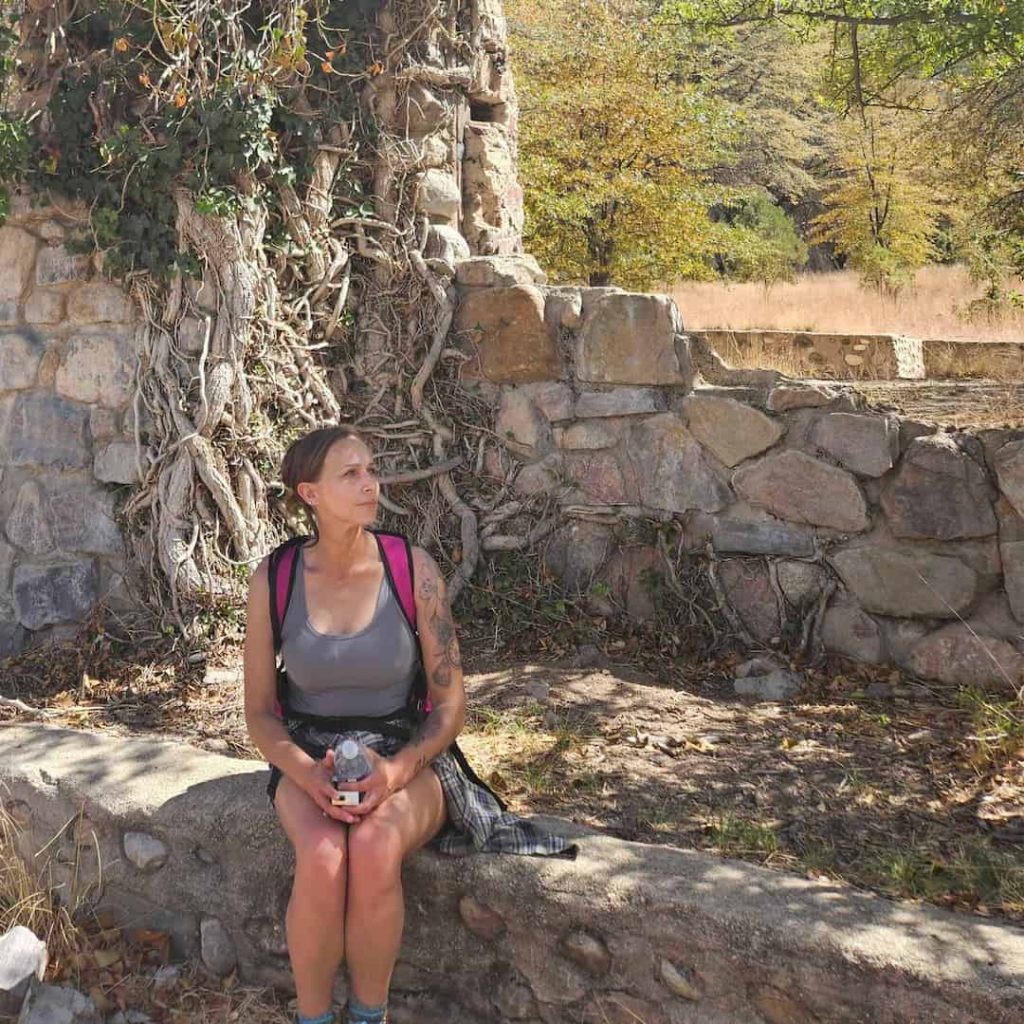Leading with Lived Experience and Heart
A perfect fit for CHR: Samantha (Sam) brings a deeply personal and compassionate approach to harm reduction-a practical, evidence-based strategy that meets people where they are, respects their autonomy, and empowers them to make safer choices. Her fierce commitment to dignity and equity evident, Sam was introduced into the concept of harm reduction in 2021. “I first learned about harm reduction in 2021 when I came home from prison. I was mandated to receive services by parole. Through my health home, I learned of a contracting position that prioritized people with lived experience. This was huge for me as I was having a really hard time finding employment. It took some leg work, but I got the job. This was my first experience in the [Harm Reduction] world. Since landing that job I have stayed in the field. To say it is my passion is an understatement.”
Sam didn’t know about harm reduction during her own years of substance use. “I had no idea what it was when I was using. I wish I had-I believe it would have helped tremendously.” Now, as CHR’s Outreach Program Manager, she draws on her journey daily. Sam is an integral part of CHR’s story-first as a founding board member president, then transitioning into a full-time staff role in 2024. Sam’s current role allows her to help participants who are in a similar position she once was; this lived experience makes her an essential contributor to the organization’s success and growth.
For Sam, harm reduction isn’t just her job-it’s a lifeline that has helped her define recovery on her own terms. “Harm reduction allowed me to define what recovery means to me. Before HR I felt as if I didn’t have a recovery home. My views did not necessarily align with traditional abstinence-based groups and I had no safe place to turn to when I needed help. In finding HR though, I have found a group of like minded individuals and now have the support I need to make decisions about my recovery without the fear of judgement or bias. It also changed my language and how I speak and define things. A great example of this is in identity. I no longer refer to myself as an addict or junkie-now I am a person who has a history with chaotic substance use-I love that my past does not define who I am today.”
Sam credits CHR’s unique culture as a big reason for the organization’s success. “The flexibility that we offer to our participants is offered to us as staff as well. Working at CHR is unlike any job I have ever had before. Knowing that my voice and ideas are valued and considered means the world to me. The culture is what keeps me here. I love that I am able to make a difference in my community and that CHR stays rooted in its vision and mission.” She has watched CHRs rapid growth, launching new programs and expanding staff to meet rising needs.
Despite her unwavering commitment and deep passion, the challenges in harm reduction are significant. “One of the biggest challenges that I have faced at CHR is seeing firsthand the overwhelming mountain of needs our participants face and then knowing that as a community we would need to do a lot more in order to really initiate long-term and sustainable change for PWUD/unhoused.” For Sam, community support is essential. She agrees with Lu Funk, CHR’s founder, that “It takes a village.” Sam adds “No one org can do it all and that is why CHR holds a special place in my heart. Lu recognizes this and prioritizes partnerships so that our folks have more opportunities to access care.”
Operating a harm reduction agency in as rural an area as Cochise County brings unique hurdles; Sam observes some of the challenges that metropolitan area agencies do not have to contend with. “Geographical location! Rural folks are already limited in access because of a mountain of barriers. Transportation being a huge one. In a big city you have more access to services-here we constantly struggle to meet the needs of people because our county is so spread out.”
Looking ahead, Sam envisions a future where Cochise County has a countywide low-barrier shelter with wraparound services and transportation; something that would transform not only the lives of CHR participants but the entire community. Until then, she focuses on what she can do: listening, supporting, and advocating for those whose voices are too often ignored.
“If I could shout one message from the rooftops, it would be this: Stigma is alive and well in our community-and it runs deep. We often forget that behind every struggle with mental health or substance use is a person who is worthy of care, dignity, and support. Too often, individuals facing unstable housing or chaotic substance use are met with judgment instead of empathy. But every person-regardless of their circumstances-is deserving of help, hope, and human connection. We as a community must shift our mindset. We need to remember a time when compassion and grace were our first responses, not our last resorts-and return to that kind of community. One where support replaces stigma, and compassion leads the way. No one heals through shame-only through love, acceptance, and the belief that they matter.”
Sam’s leadership is a reminder that real change starts with listening, partnership, and the courage to believe everyone is worthy of care. Her work continues to inspire CHR and the broader community to build a future rooted in compassion, inclusion, and hope.
